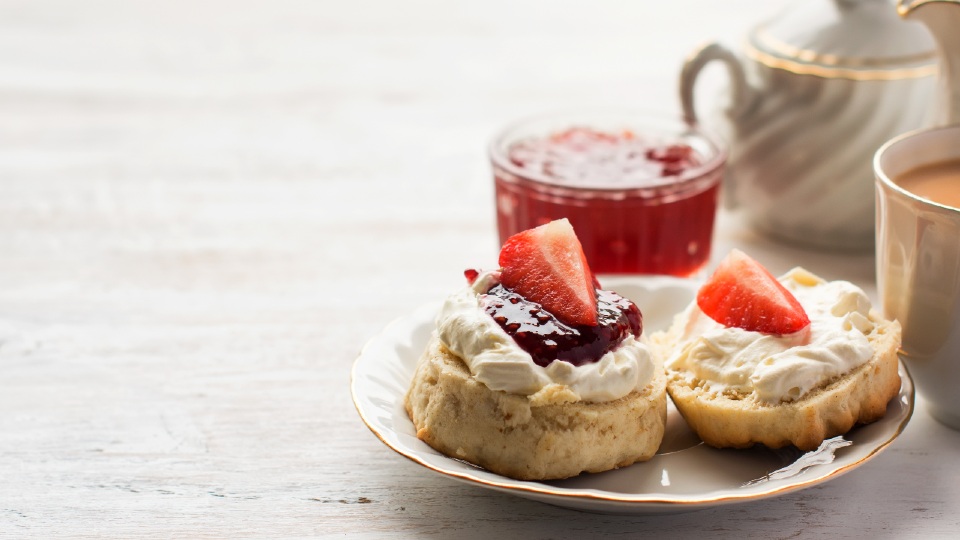As tasty as these scone toppings are, the amount of energy used to make them is not so tasty.
But a Loughborough engineer is exploring a novel solution they hope will use less energy, retain more nutrients, and create longer-life products – and that’s to cook jam and cream using sound.
Yep, that’s right, sound.
Specifically, ultrasound - which you may be familiar with as these soundwaves (not audible to the human ear) are used for pregnancy scans and other medical imaging applications.
Dr Carmen Torres-Sanchez, leader of the Multifunctional Materials Manufacturing (MMM) Lab in the Wolfson School, has been exploring the feasibility of using ultrasound in manufacturing – a process called ‘sonication’ – in a lab-based study co-funded by PERA International Ltd.
The current processes involved in manufacturing jams, preserves, and creams are very energy-intensive – for example, high temperatures are needed to make conserves, high-powered machines are used to whip cream, and processes often run for a long time.
Dr Torres-Sanchez and team have investigated whether sonication can be added to existing manufacturing techniques to speed up and ultimately lower the energy use of two power-intensive processes: fruit cooking (for jam and conserve manufacturing) and cream emulsification (a process that involves combining two ingredients that do not usually mix easily, in this case, a water-fat blend).
Though the study is still in its feasibility stage, Dr Torres-Sanchez says her early findings – which she hopes to build on in collaboration with industrial partners and then publish in a peer-reviewed journal paper – look ‘promising’.
She said: “Our studies so far suggest that sonication-aided cooking process of jams and conserves results in lower peak temperatures and quicker gelation (where the product reaches the correct consistency). This may have the benefit of better preservation of vitamins and nutrients – which are damaged by long-term exposure to heat using traditional methods – in the final product.
“We also tested if sonication could be used to aid the whipping of cream to create the characteristic foamy emulsion we desire. We found that the sonication-aided cream achieved a stable emulsion faster than cream made with the traditional ‘silent’ process, and its viscosity was better. In addition, the sonicated whipped cream showed longer stability and shelf-life than its silent counterpart.
“The results are promising and a reduction in energy consumption in manufacturing processes could help food and drink manufacturers meet the targets imposed by the climate-driven National Strategy for Net Zero.”
Dr Torres-Sanchez is looking for companies interested in trialling sonication in production equipment and moving the experiments from the lab to the factory floor.
If successful, you may be eating sound-cooked-more-environmentally-friendly jam and cream at future Jubilees – which should be music to your ears (and mouth!).
Those interested in collaborating with Dr Torres-Sanchez, can email: c.torres@lboro.ac.uk. Further information on the project can be found in an online Issuu flipbook.
